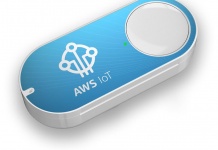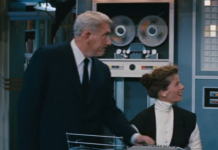 One of the anti-DRM arguments people often make is that if you make it easy enough for people to buy content legitimately, they won’t need to pirate anymore. Here is a case study in favor of that argument:
One of the anti-DRM arguments people often make is that if you make it easy enough for people to buy content legitimately, they won’t need to pirate anymore. Here is a case study in favor of that argument:
Thorin Kiosowski over at Lifehacker has a great essay up about why he stopped pirating media and started paying for it legitimately. Kiosowski begins by explaining why he pirated to begin with, namely that at the time, ‘legit’ digital media was confusing, expensive and failed to provide a good experience.
He then lists three things that changed his mind:
• He stopped feeling the need to own everything immediately
• Media and software companies made things easier
• It ended up being more cost-effective not to pirate
In his analysis, Kiosowski raises some good points. I don’t think we’re all the way there yet in terms of balancing the factors of availability, customer experience and price. But I agree with his point that when you’re dealing with free or nearly-free services like Spotify (free, or $5 to remove the ads) or Netflix (less than eight bucks), it’s certainly much easier and more convenient to pay and use the service like a regular person than to seek out a torrent and spend hours waiting for it to download.
Of course, as with all Lifehacker stories, the best story is just as often in the comments as it is in the article proper. For a counterpoint, a guy from Argentina writes:
“I live in Argentina and we can’t buy or rent SHIT here. Just the other day I tried to buy a $5 item from Amazon. It came with a $50 shipping and handling. Yes, $50 for a $5 item. It’s the same with digital content, here it doesn’t exist. A private tracker and EVERYTHING I can’t (CAN’T) buy, I can get. 1 click away. It’s sad, really.”


































Another factor to consider is the growing potential for malware in eBooks that come from subterranean sources. The close kinship of ePub (IDPF) and KF8 (Amazon) with HTML, especially HTML5, suggests that exploits now common to the web might easily migrate to eBooks.
What still tempts me is content that’s either not available in the US or is available, but at a considerable delay. I honestly haven’t decided what I will do later this year when Sherlock Series 3 is released. The *right* thing to do is unplug from the fandom for 5-6 months while I wait for the DVDs to be released here (major cliffhanger at the end of last season that I don’t want spoiled). But a part of me wishes I didn’t have to do that, and I’m fervently hoping there will be a simultaneous or near-simultaneous release by the time the “problem” arises. Otherwise, I suppose I could save my “first strike” from the Copyright Alert System for a good cause. 🙂
The Internet is currently being swamped with fake sites teeming with malware and identity theft. An author group I belong to has found half a dozen new ones in the last week.
And do be careful of sites whose prices seem astonishingly low. They are after your credit card info. A pile of new ones have appeared as well.
I don’t feel bad about the malware because karma is a bitch, but people who want to buy books shouldn’t be targeted.